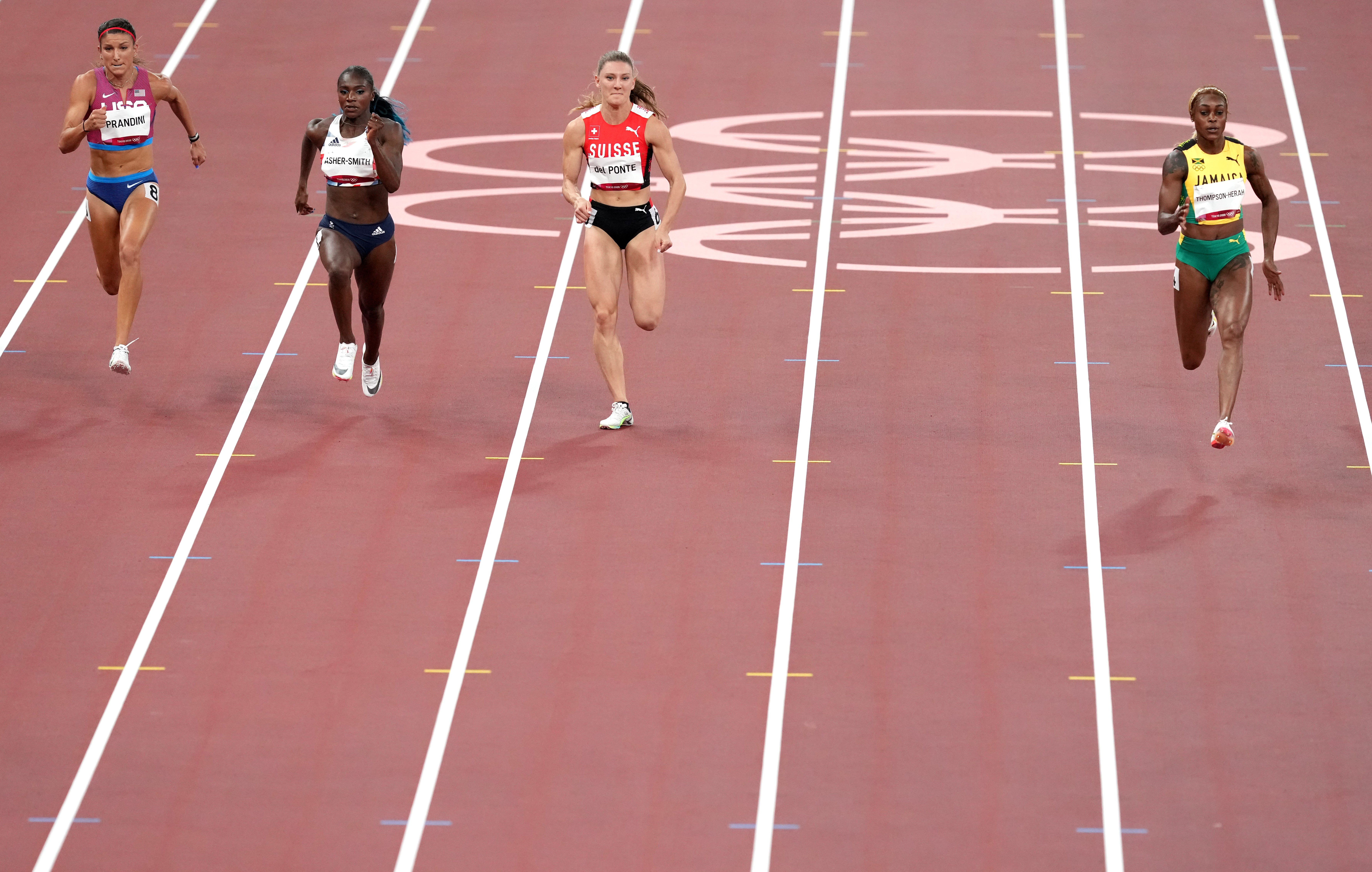Dina Asher-Smith: Tearful Team GB sprint star pulls out of Olympic 200m with hamstring injury
The Team GB star finished third in her 100m semi-final and has now pulled out of the 200m due to a hamstring injury

Your support helps us to tell the story
From reproductive rights to climate change to Big Tech, The Independent is on the ground when the story is developing. Whether it's investigating the financials of Elon Musk's pro-Trump PAC or producing our latest documentary, 'The A Word', which shines a light on the American women fighting for reproductive rights, we know how important it is to parse out the facts from the messaging.
At such a critical moment in US history, we need reporters on the ground. Your donation allows us to keep sending journalists to speak to both sides of the story.
The Independent is trusted by Americans across the entire political spectrum. And unlike many other quality news outlets, we choose not to lock Americans out of our reporting and analysis with paywalls. We believe quality journalism should be available to everyone, paid for by those who can afford it.
Your support makes all the difference.Dina Asher-Smith had laughed off concerns earlier week as she insisted her “grumpy” hamstring had cheered up in time for Tokyo, but after missing out on the Olympic 100m final on Saturday she then pulled out of the women’s 200m in a tearful interview, admitting she had torn the muscle at the British Grand Prix in Gateshead earlier this month.
In the circumstances it is astonishing she ran at all. “I tore it pretty bad, I was told it was a rupture and it would take three months to get back, it’s been a lot to deal with,” Asher-Smith told the BBC. “We had this whole statement ready to go but thankfully we had a second option, it was a slight misdiagnosis. We turned over every stone to stand on the line. I’m so grateful for everybody to put in so much work for me to stand on this track.
“I’m so disappointed, it’s Tokyo 2020, it’s everything I’ve trained for over the last few years, the last few weeks have been absolutely insane.”
It was a shock, but it was not entirely unexpected. Asher-Smith had ran a ragged heat on Friday, finishing second. Afterwards she said she had “another level” to find but she couldn’t locate it on a sticky night in Tokyo, finishing third in her semi-final in a time of 11.05 sec, way short of her personal best and the national record of 10.83. The performance was not enough to qualify for the final, even as a fastest finisher.
Aged 25, this was meant to be her peak Games. She crushed several rivals in Gateshead before her withdrawal and seemed primed to add more medals to the 200m gold and 100m silver she collected at the 2019 World Championships. Instead she looked well off her flowing best, seemingly running with heavy legs and the tension showing in her face.
“The most frustrating thing for me was that I was in the shape of my life,” she said. “If you asked me six weeks ago, I was very confident that I was going to win this, being completely frank. Because I knew that every part of my race – my start, my transition and my finish – was better than some of the fastest women in the world.”

Britain did have a finalist after teammate Darryl Neita carried her impressive form from the heats into these semi-finals to qualify as one of the next to fastest finishers with a time of 11.00 sec exactly. Britain’s third entrant, Asha Philip, finished eighth in her race. “I’m proud of Daryll, she’s done it, she deserves it,” said Asher-Smith.
Elaine Thompson-Herah ran an Olympic record of 10.61 seconds to beat Shelly-Ann Fraser-Pryce and Shericka Jackson as Jamaica claimed a clean sweep in the final. Thompson-Herah’s time was the second fastest in history, beaten only by Florence Griffith-Joyner’s world record of 10.49secs set back in 1988.
Nigerian sprinter Blessing Okagbare was absent from the first semi-final after being provisionally suspended after a positive test for human growth hormone.
Join our commenting forum
Join thought-provoking conversations, follow other Independent readers and see their replies
Comments